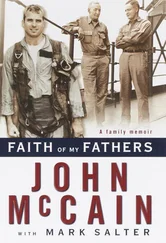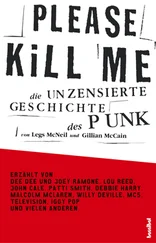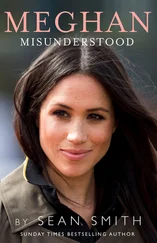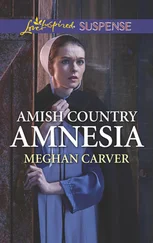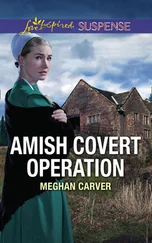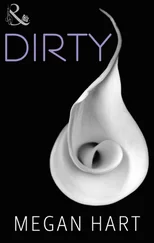He determined that I would be fine, as long as I didn’t take anything more. This was especially good news because it meant that my mother and father, who were traveling in the far front of the plane—and had enough things on their minds that day—didn’t need to be informed of my condition. Actually, to this day I don’t believe that my dad has been told about what my friends would later refer to as my “Lohan Moment.” Until now. (Hi, Dad. I love you.)
By the time our plane got to Indianapolis, our fourth stop, I was coming alive again. I pulled myself together enough to attend the rally, which began at two o’clock. But when I came onstage with Dad, I was still woozy and dreamy-feeling, and remember looking out to the crowd and thinking, Wow, so many nice older faces! And how happy they look! This seemed like a wonderful sign—the fulfillment of brilliant campaign strategy. Older people vote in higher numbers, and tomorrow I imagined that all those great oldsters around the country would be getting up at the crack of dawn and flooding into voting booths to cast their ballot for Dad. There was no way we could lose.
I am an eternal optimist. Did I mention that? And I couldn’t wait to see Mr. MIT proved wrong. Election day was just hours away and I was utterly sure we could win.
MY DAD’S SPEECHES ON THE LAST DAY HAD SO MUCH passion and love in them. He always speaks with his heart, and that day, it really came across. My favorite part of the speech was the final line—“We’re Americans, and we fight! Never surrender! Never give up!” Music would play, either Journey’s “Don’t Stop Believin’ ” or “Life Is a Highway” by Tom Cochrane. I still have a hard time listening to those songs even now.
There is a line from “Life Is a Highway” that I love: “Through all these cities and all these towns. It’s in my blood and it’s all around. I love you now and I loved you then.” And Tom Cochrane screams, “Just tell them we’re survivors!”
That was exactly how I felt. I loved my father as the candidate back in 2000 and I loved him that much more in 2008. I wanted to scream at the cynics and the people with their Hope and Change T-shirts. We were survivors! This fight wasn’t over—and the road didn’t end here.
WE FLEW AROUND THAT DAY IN THREE PRIVATELY CHARTERED airplanes. The conditions were similar to the three buses that were used on the ground. There was a very nice, very large 737, where my mom and dad sat, as well as the Groomsmen and other important staff and media. A second 747, also very nice, was for the press and other staff.
And then, there was a third plane. It was a much smaller puddle-jumper—smellier, older, and skinny to the point of being tubular. This was no-man’s-land, the Island of Misfit Toys in the air. The sound guys and boom operators were assigned this plane, and other out-of-the-loop techies. There were journalists from unknown publications, or journalists who had been unfairly negative, taken potshots, had interrupted at press conferences, or were just unpopular and irritating to be around.
It shouldn’t be a huge surprise where I wound up, except Mr. Burns had nothing to do with it.
I asked to be there.
That’s right. I begged for that third plane. After being revived in the back of the first plane, I was going crazy listening to journalists and staffers sitting all around me and talking about poll numbers, what the Obama campaign was doing (only two rallies that day), and complaining endlessly about anything and everything. I wanted to get away from the know-it-all vibe.
Ahhh, the crummy third plane. It was small and cramped and the toilet smelled really bad and only worked half the time. When it was broken it made that annoying continual flushing sound. None of that mattered.
It was a paradise to me. It was quieter and my fellow travelers weren’t drunk on power. They were laid-back and fun-loving and had the best “on the road” stories. One cameraman told me all about his former life as a Chippendale’s dancer. This was stuff you don’t get from Wall Street Journal reporters, believe me.
But with three more cities, and three more rallies to go, I was exhausted. At one point, while standing in line to get back on the plane, I asked Anna Marie Cox, a Time magazine blogger, if it was normal to do this many events on the last day. “No, Meghan, it’s not!” she answered.
It reminded me of the fairy tale “The Red Shoes,” where the girl puts on the magic red ballet slippers to dance, but then realizes she can’t stop dancing—and eventually dances herself to death. It was a morbid vision, but suddenly it was all that I could think about. I was wearing campaign shoes that were making me walk, and walk, and walk. They were making me stand, and stand, and stand. Wave and wave and wave. It felt like it would never end.
This is what I remember about election day: I woke up in my parents’ guest apartment in Phoenix with no memory of how I got there.
It was afternoon already. I had missed the entire morning of media craze. Shannon and Heather were hanging out, waiting for me to wake up, and John King’s face was on CNN. He was doing his bizarre screen moves, when he touches his big magic screen and zeros in on certain counties and states and exit polls.
I took a shower and picked out a dress to wear. Trying to imagine what kind of night was ahead, I decided to wear something celebratory and fun—that way I’d be dressing for the occasion that I hoped for, not necessarily the one I’d get. It wasn’t a hard decision. The one true constant of my clothing choices for the campaign was something glittery, something with sequins. Long ago I had decided it was always better to dress up than down. And there was no way on a night this big and important that I was going to wear a suit.
We could still win, couldn’t we?
Couldn’t we?
The dress was so beautiful—knee-length, gold and glittery with sequins everywhere and a gold bow across the waist. It was probably more acceptable for a night on the town in Vegas than election night but it was just what I needed. Josh helped me get my hair in a very curly, extravagant updo.
I decided to walk upstairs by myself to say hello to everyone in my parents’ apartment. I wanted to see my dad and wish everybody good luck. I assumed that we had a very long night ahead of us. Like I’ve said, election days and nights were boring and kind of dreadful, since the call usually wasn’t made until the middle of the night. And it wasn’t impossible that it could go on for days, like the presidential election of 2000, when the vote in Florida had to be recounted. I had a hunch that this time, it was going to be a close election too.
I entered the apartment in a very cheery mood, full of energy, and looking forward to seeing everyone. Inside, besides my family—my parents, brothers, and sister, my grandmother—the usual suspects were standing around: Steve Schmidt, Rick Davis, Charlie Black, Brooke Buchanan, and Blond Amazon, along with an assortment of my parents’ assistants, close staffers, the advance team, and of course, the Secret Service.
Something was wrong, though. Everyone was just standing around, kind of dead and super-still. Nobody was moving. It was like they’d been frozen in place. Political people were never quiet or motionless like this, when gathered together. They were always talking on their phones, checking their BlackBerrys, moving around the room, schmoozing. Maybe that’s why they were called “movers and shakers,” because people in politics never just stood around .
We must be losing.
What I didn’t know was that we’d already lost.
Dan Yeary, the pastor of our church, North Phoenix Baptist, must have noticed the look on my face. He came up to me and grabbed my hand and said, “Everything happens for a reason, Meghan. God always has a plan.”
Читать дальше

